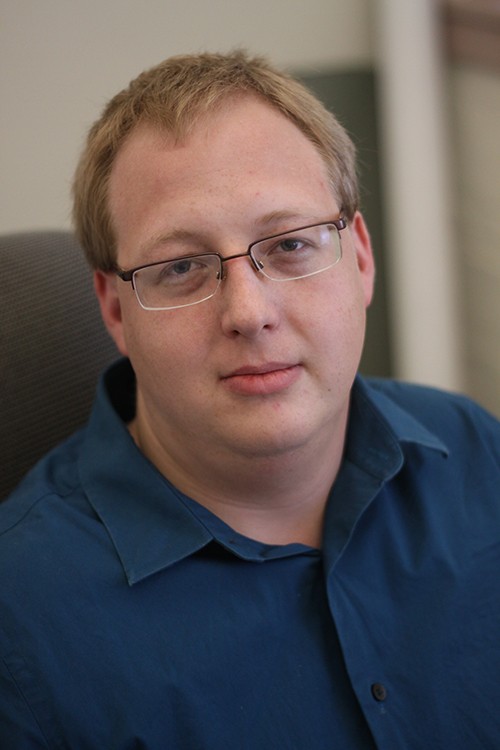Roeland Hancock was elected president of the Graduate and Professional Student Council for the next school year. Hancock is getting his graduate degree in psychology and is the husband of the current President Emily Connally.
Daily Wildcat: What was your previous experience in GPSC?
Roeland Hancock: I served a term as a representative from the College of Social and Behavioral Sciences, and I was involved in GPSC’s internal appropriations board as well as the Student Services Fee Advisory Board.
How are you feeling about becoming the new president-elect?
It is both exciting and anxiety provoking. It’s a big responsibility and a challenging job to represent graduate students and the university. We have had a lot of financial troubles at the university, which trickle down to graduate students, and can affect us in significant ways. As the UA gets fewer and fewer resources from the state, it becomes harder to do things.
What changes, if any, do you plan to make to the GPSC?
I want to focus a lot on media outreach. We (GPSC) used to have a research and policy director position, and I am planning to reinstate that position. The person who holds the position is responsible for maintaining ties with the media and making sure that we (GPSC) pass information and issues pertaining to graduate students onto the media. They must also stay on top of what is going on at the state level and see how it might affect graduate students. I’m sure that there will be other small changes along the way, but for now, that is the big one.
What are the goals and future plans for GPSC next year? Any events or ideas in the works yet?
We are definitely going to continue what we have been doing, including continuing the graduate enrichment program that we started this year. I want to try and expand that. The program offers several courses in grant writing, various computer and research programs for graduate students by graduate students, and a Spanish for Professionals course. I want to try and keep the gains we have made over the past year, which may be a struggle in it of itself, but we will continue to address usual issues like student health coverage and fees.
How is your leadership style different from that of your wife, Emily Connally?
I am less of a direct in-your-face leader, and I’m a lot calmer. But I don’t always have a lot of patience for some things, like trivial discussions that sometimes occur at council meetings.
Take me through your campaign process. What platforms and ideas did you run on?
I ran on the media outreach idea in conjunction with more actively collecting information from groups on campus. In the past, we had surveys, and those really helped inform some decisions. We will continue that and collect more information that we continually receive from our constituents. I’d also like to update the GPSC website to make it easier for people to contact us, and tie us closer with social networking websites. In addition, I want to organize forums on various topics, like undergraduate instruction.
Do you think a reason as to why you ran unopposed is because you are Connally’s husband? Do you wish that you had competition?
I’m sure some people have the view that I ran unopposed because I am her husband. I don’t think that’s true, and I don’t see a reason for someone to not try and run. Having more competition would have made things much more interesting because it is good to engage in debate.









